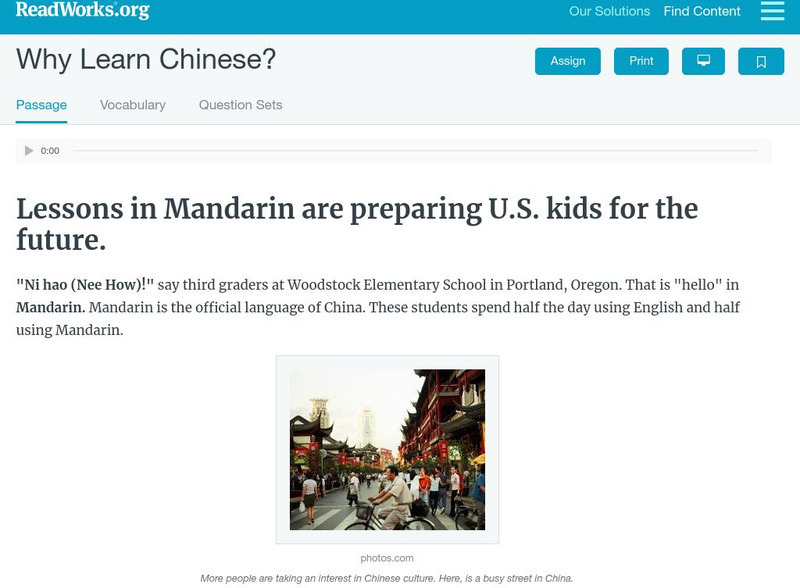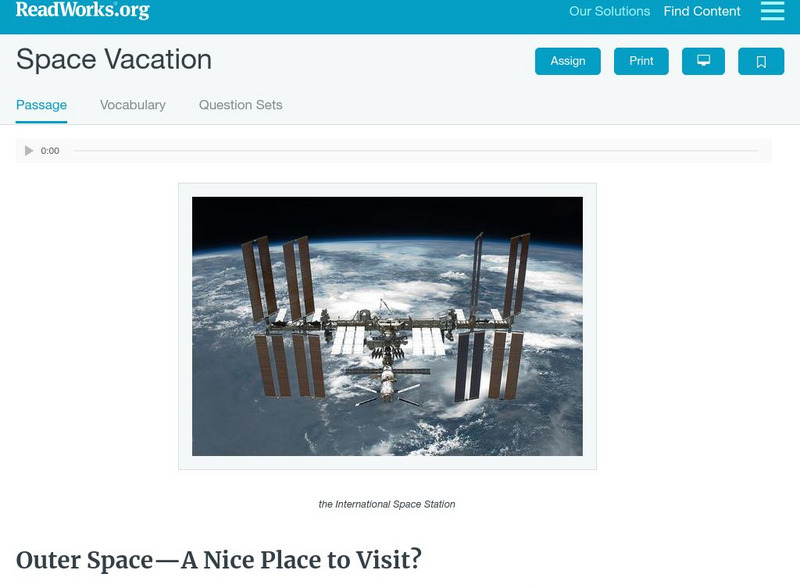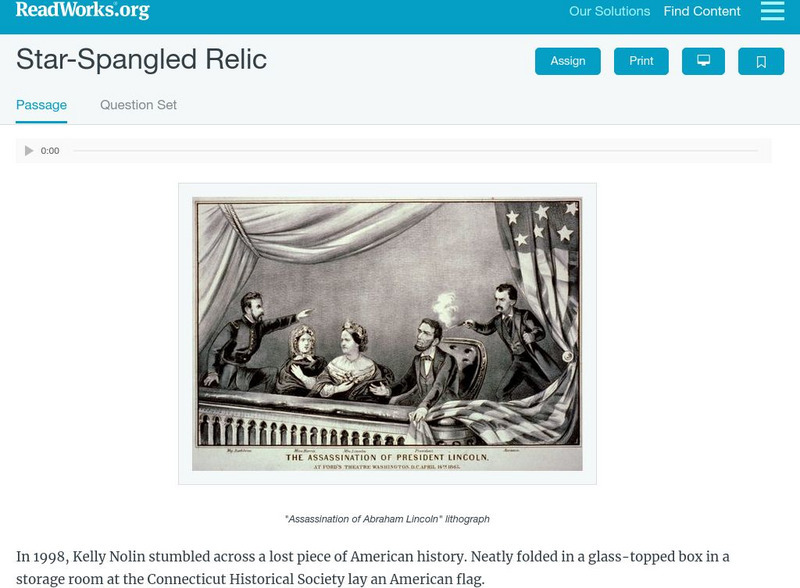Read Works
Read Works: Drawing Conclusions 1st Grade Unit
[Free Registration/Login Required] A three-lesson unit on drawing conclusions through which students learn how to use pictures and context clues to discover a missing word and to draw conclusions about a story. Students also use...
Polk Brothers Foundation Center for Urban Education at DePaul University
De Paul University: Center for Urban Education: I Can Draw Conclusions: History Analysis [Pdf]
Students can use these guiding questions as they complete two graphic organizers about a historical event. Students will then ask guiding questions about the historical event to draw conclusions about the historical event.
Texas Education Agency
Texas Gateway: Drawing Conclusions on the Sufficiency and Strength of Research
The activities in this lesson will help you focus on the important features of arguments, especially on the writer (or the source) and the evidence the writer provides. That way, you can more accurately decide if an argument is valid and...
Read Works
Read Works: Drawing Conclusions 3rd Grade Unit
[Free Registration/Login Required] A two-lesson unit on drawing conclusions through which students learn how to recognize the difference between implicit information and drawing conclusions. Students also learn to draw conclusions in...
Read Works
Read Works: Kindergarten: Three Lesson Unit: Drawing Conclusions
[Free Registration/Login Required] Three lessons designed to introduce young learners and beginning readers to the concept of drawing conclusions based on actions performed in a charades game, on verbal cues given in a guessing game, and...
Read Works
Read Works: Drawing Conclusions Kindergarten Unit: Short Story
[Free Registration/Login Required] A lesson plan teaching students to make conclusions based on a sentences and short texts. Students use textual cues to explain how the conclusions were reached. Ideas for direct teaching, guided...
Annenberg Foundation
Annenberg Learner: Journey North: Reading Strategies: Make Inferences and Draw Conclusions
Learn how to go beyond the literal meaning of a text by using a list of guiding questions to make inferences and draw conclusions.
Soft Schools
Soft Schools: Drawing Conclusions
Read a literary text paragraph and then answer questions that require the reader to draw conclusions from the text in this nine-question quiz.
Sam Houston State University
Texas Center for Academic Excellence: Drawing Conclusions Post Test
Read a text selection, and then answer seven multiple-choice quiz questions. Includes link to answers for checking.
Polk Brothers Foundation Center for Urban Education at DePaul University
De Paul University: Center for Urban Education: I Can Draw Conclusions: History Analysis [Pdf]
Graphic organizers are provided to help analyze the importance of people in history and to place events in chronological order. Guiding questions are provided to help guide students
Read Works
Read Works: Grade 2: Four Lesson Unit: Drawing Conclusions
[Free Registration/Login Required] Designed to teach students to identify the difference between explicit information and conclusions and to make text-to-self and text-to-text connections. Lessons are based on the provided text "The...
Read Works
Read Works: Fourth Grade: One Lesson Unit: Drawing Conclusions
[Free Registration/Login Required] Students are guided through a lesson to understand the difference between explicit information and conclusions drawn from a text. With free login, users have access to passages used in this lesson.
Quia
Quia: Inferences and Drawing Conclusion
Read a short text and then choose the correct inference or conclusion in this Rags to Riches style game.
Quia
Quia: 5th Grade Drawing Conclusions
Read a short text and then choose an appropriate inference or conclusion in this five-question quiz.
Read Works
Read Works: Bringing Books to Life
[Free Registration/Login Required] Students read about how children's books become movies. A question sheet is available to help students build skills in drawing conclusions.
Read Works
Read Works: Why Learn Chinese
[Free Registration/Login Required] Students read about why some third-graders are learning to speak Mandarin. A question sheet is available to help students build skills in drawing conclusions.
Read Works
Read Works: Great Wall Great Jump
[Free Registration/Login Required] Students read about daredevil skateboarder Danny Way and his attempt to jump the Great Wall of China. A question sheet is available to help students build skills in drawing conclusions.
Read Works
Read Works: Rain Forest Rescue
[Free Registration/Login Required] Students read about how the Amazon rain forest and how Brazil is trying to protect it. A question sheet is available to help students build skills in drawing conclusions.
Read Works
Read Works: Spiders and a Balanced Diet
[Free Registration/Login Required] Students read about how spiders choose to eat a balanced diet. A question sheet is available to help students build skills in drawing conclusions.
Read Works
Read Works: Space Vacation
[Free Registration/Login Required] Students read about tourists paying for vacation trips to the space station with astronauts. A question sheet is available to help students build skills in drawing conclusions.
Read Works
Read Works: Green Machines
[Free Registration/Login Required] Students read about low-cost laptop computers improving education for children in need around the world. A question sheet is available to help students build skills in drawing conclusions.
Read Works
Read Works: Star Spangled Relic
[Free Registration/Login Required] Students read about how on important historical relic was found. A question sheet is available to help students build skills in drawing conclusions.
Texas Education Agency
Texas Gateway: Annotate and Analyze a Paired Passage: Practice 1
In this lesson, students will read and annotate a pair of texts to make inferences, draw conclusions, and synthesize ideas and details using textual evidence.
Texas Education Agency
Texas Gateway: Annotate and Analyze a Paired Passage: Practice 2
[Accessible by TX Educators. Free Registration/Login Required] In this lesson, students will read and annotate a pair of texts to make inferences, draw conclusions, and synthesize ideas and details using textual evidence.
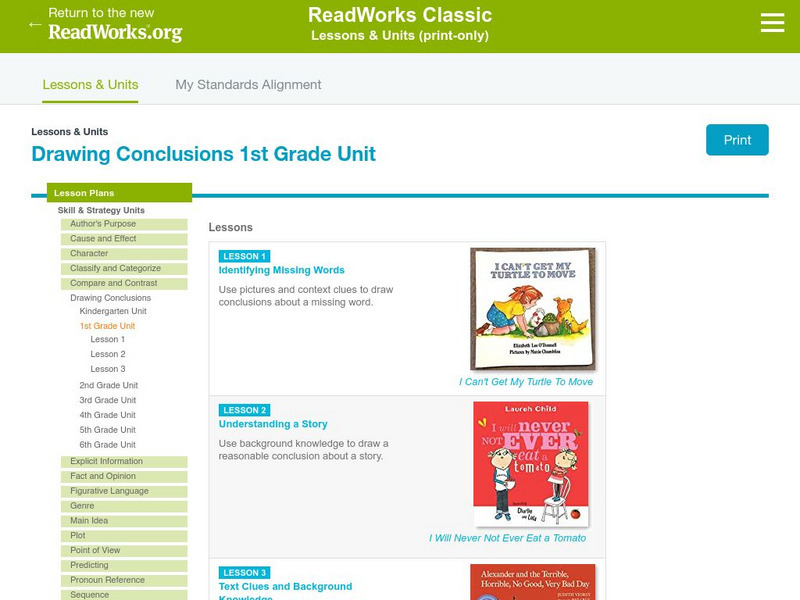
![De Paul University: Center for Urban Education: I Can Draw Conclusions: History Analysis [Pdf] Activity De Paul University: Center for Urban Education: I Can Draw Conclusions: History Analysis [Pdf] Activity](https://content.lessonplanet.com/knovation/original/119989-9e7c5fe7337c4692a71d6981f22134f7.jpg?1661787068)
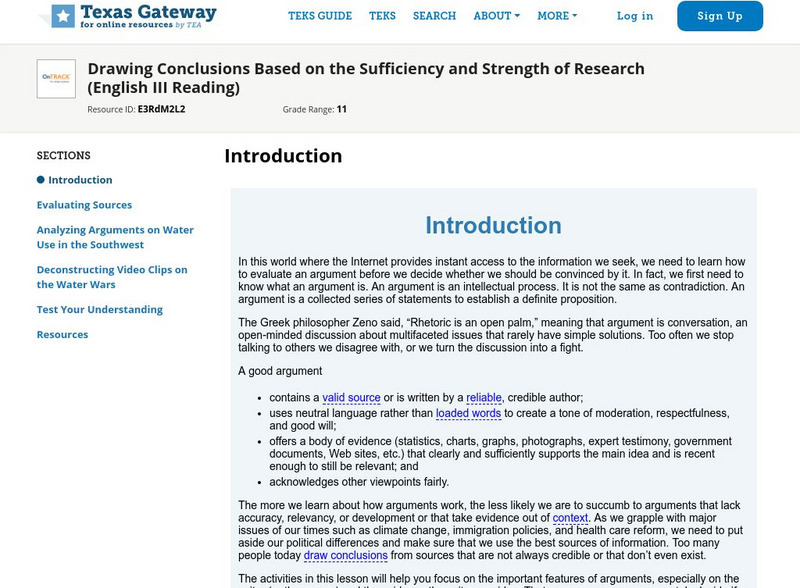

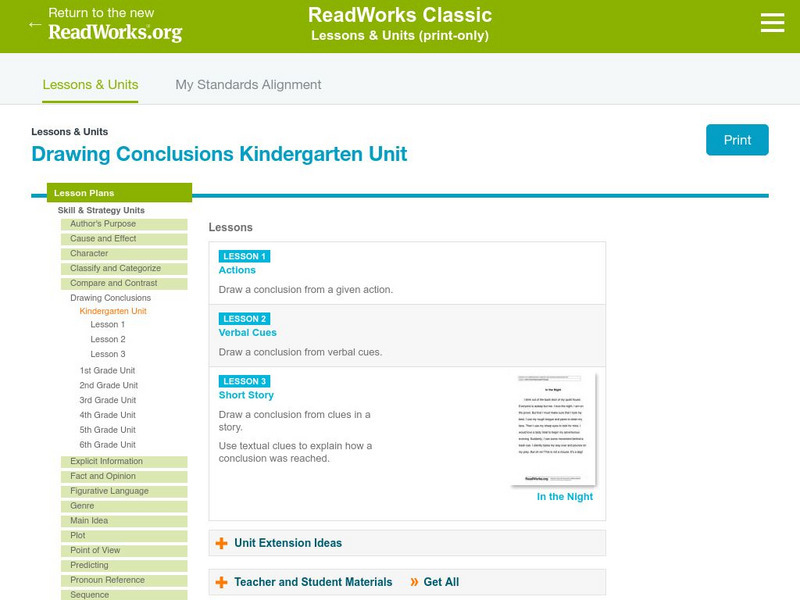


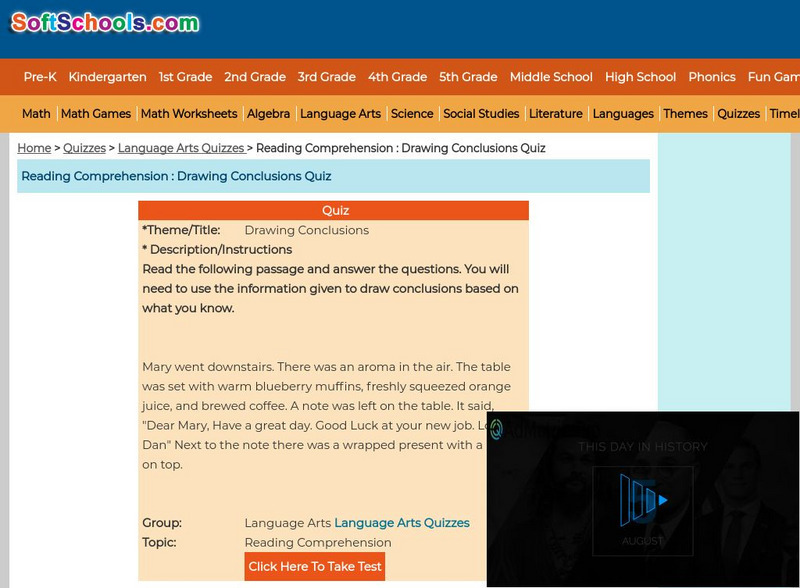

![De Paul University: Center for Urban Education: I Can Draw Conclusions: History Analysis [Pdf] Graphic De Paul University: Center for Urban Education: I Can Draw Conclusions: History Analysis [Pdf] Graphic](https://d15y2dacu3jp90.cloudfront.net/images/attachment_defaults/resource/large/FPO-knovation.png)





